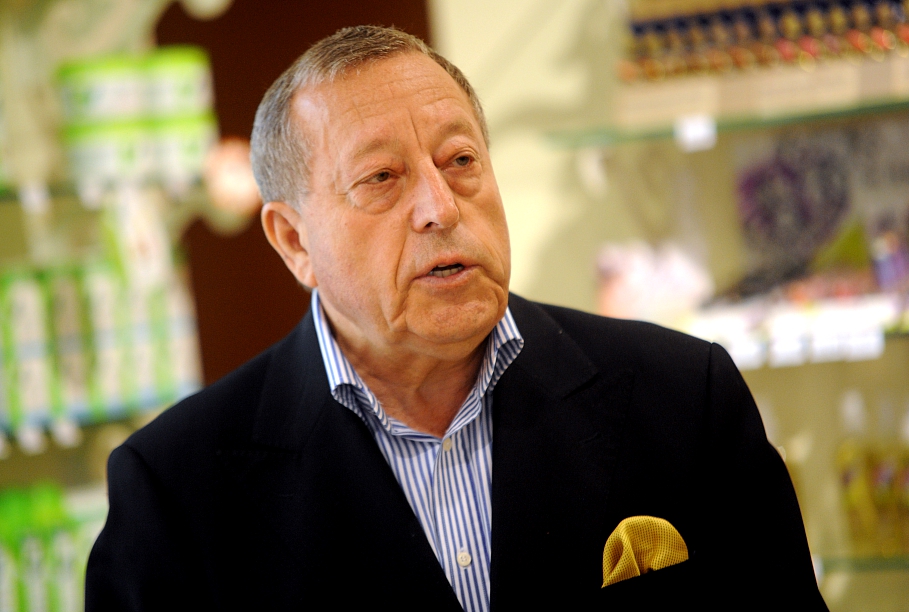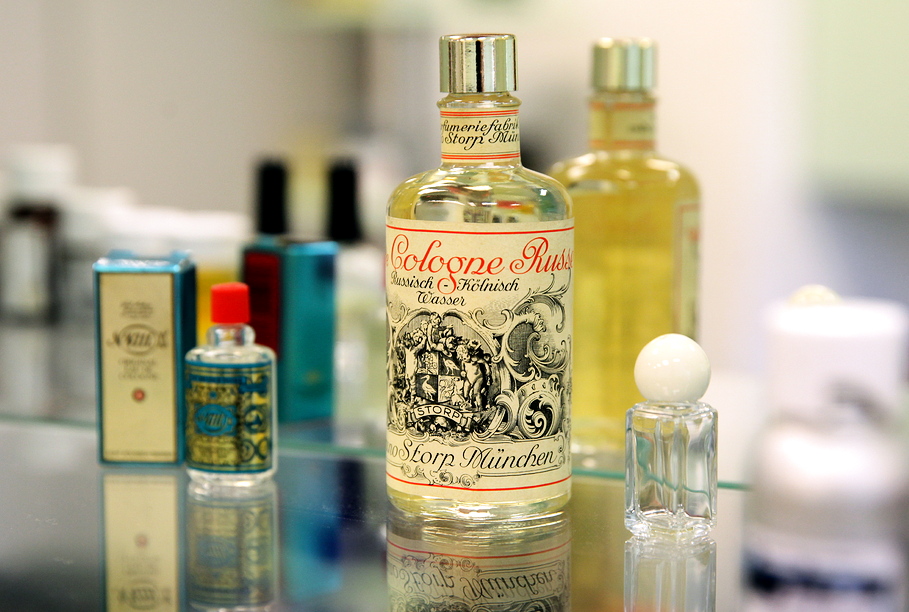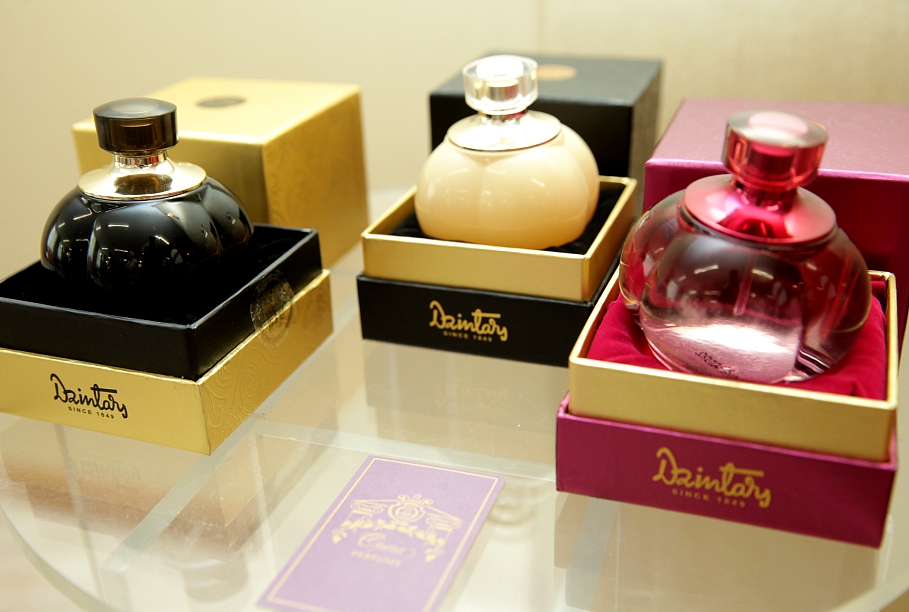The company is headed by Iļja Gerčikovs who owns 69.8% of the shares and has been at the helm of the business since 1974.
Experts criticize Dzintars for not adapting to a market economy and compare it to Madara Cosmetics, another Latvian perfume manufacturer that does not have the problems that Dzintars has.
What exactly were those mistakes? Here's what the experts say, listing seven woes that have lead the perfume company to its present dire straits.
1. One-man leadership
As owner Gerčikovs is doing most of the decision making, experts say that corporate management carried out by a single person is simply too risky.

2. Socialist-style management
Although being called a "red manager" is not a put-down, Gerčikovs has prided himself in being called "too socialist" even as the country shifted to a market economy.
"Summing up the main problem, I think that Dzintars wasn't able to adapt to the new market situation after the soviet period," said Salvis Lapiņš, finance director at pharma company Olainfarm.
He juxtaposed Dzintars with Madara Cosmetics, which, while established only in the 2000s, is increasing turnover rapidly and reaps a solid profit.
"Madara is doing what Dzintars has not been able to do -- that is, to grow in accordance with principles rooted in the market," said Lapiņš.
In 2015 Madara Cosmetics had a turnover of €3.9m with profits near €0.5m. Dzintars posted a turnover of €5.9m and losses of €2.6m.
3. At least only a few have been fired
While companies operating with losses usually cut expenses, including by sacking employees, Dzintars appears to operate on a different principle.
"We had to fire only a few, and we don't cut salaries. It's most important that we've preserved the collective," said Gerčikovs, referring to the company's performance in 2008.
Experts say this is another example of the "red manager" mentality. However same staff cuts were in fact implemented, as the number of employees decreased from 402 in 2011 to 345 in 2015.
Meanwhile the profitable Madara Cosmetics employs only 72 people.
In a twisted turn of fate, in the late 2000s Gerčikovs even criticized Madara Cosmetics for their marketing-heavy approach.
4. A difficult inheritance
The company has high expenditures on heating and energy, and experts who've been to the Dzintars factory say that a company with the turnover of Dzintars cannot maintain the factory, originally built for 1,400 employees in 1969.
"In Gerčikov's defense, he received a really difficult inheritance," said Lapiņš.
5. Not letting go of Russia
In the 90s, 70% of Dzintars' products were sold in Russia, where the company held 8% of the market share for lipsticks.
A wisp of perfume from the Soviet era
Dzintars saw its heyday in the Soviet era with its perfumes proving very popular across the union and until recently highly sought after by residents of the former Eastern Bloc.
While in 2006 the company turned over LVL 10.2m (about €14m), selling half of its products in Russia. Gerčikovs opted to set up his own distribution network, citing dissatisfaction with the current one. Sales started falling immediately. In 2009 the turnover fell to LVL 4.4m, mostly due to the situation in Russia.
Back then Gerčikovs said that the company will instead focus on high quality organic cosmetics and try to sell it in the West. However
"It was long evident that they can't keep up with the competition and are becoming dependent on Russia's market. But this market, for a variety of reasons, is very unstable and risky," said Ģirts Rungainis.
6. A failed rebranding
While Dzintars offered the best cosmetics in the USSR, it moved to the cheap segment in the 90s. Despite this Gerčikovs kept on saying that the company is investing into its products as opposed to advertising.
The company tried to move into the mid-priced segment in 2008. Experts said that while the quality was indeed high, the company spent too little on the design and quality of packaging.

"Evidently Gerčikovs lacked funds, imagination, or something else. [The rebranding] failed in the end," said Ģirts Rungainis.
7. Not sold in time
The company head has always been against selling it, even expressing a view that Western brands want to purchase Dzintars to get rid of competition.
According to information available to Rus.lsm.lv, investors had offered buying up the troubled company in the last few years for €4m. Gerčikovs had replied that the company is worth €40-50m and maybe €70m taking potential growth into account. Small wonder the deal fell out.
The investor had been surprised about Gerčikovs thinking that the situation in Russia will improve right away. "Even when it was clear that there are troubles in Russia -- despite Dzintars not being hit by sanction, consumer purchasing power and the market weakened in the zone of the Ruble -- they continued manufacturing the usual amounts and fill their warehouses with products," a source told Rus.lsm.lv.
"I think that Gerčikovs kept it for too long," said Ģirts Rungainis.
What now?
Legal protection from creditors, requested by Dzintars on Tuesday, practically speaking amounts to insolvency. Two scenarios are possible -- whether the factory reaches an agreement with creditors and pays back its debts due to growth, or is seized by creditors and, in turn, is headed by another owner.
That is, the Dzintars factory will not die. In the worst case the owners will be different, but in the best Gerčikovs will make it. Which scenario is more likely?
"As they say, in Eastern Europe you don't hope for surprises but rather expect them," said Ģirts Rungainis.
"With that in mind I wouldn't place bets on the future of Dzintars [..] The main problem is inability to change and do something different on the part of the owners and management, [..] if they couldn't do it earlier, it's very unlikely now."






























